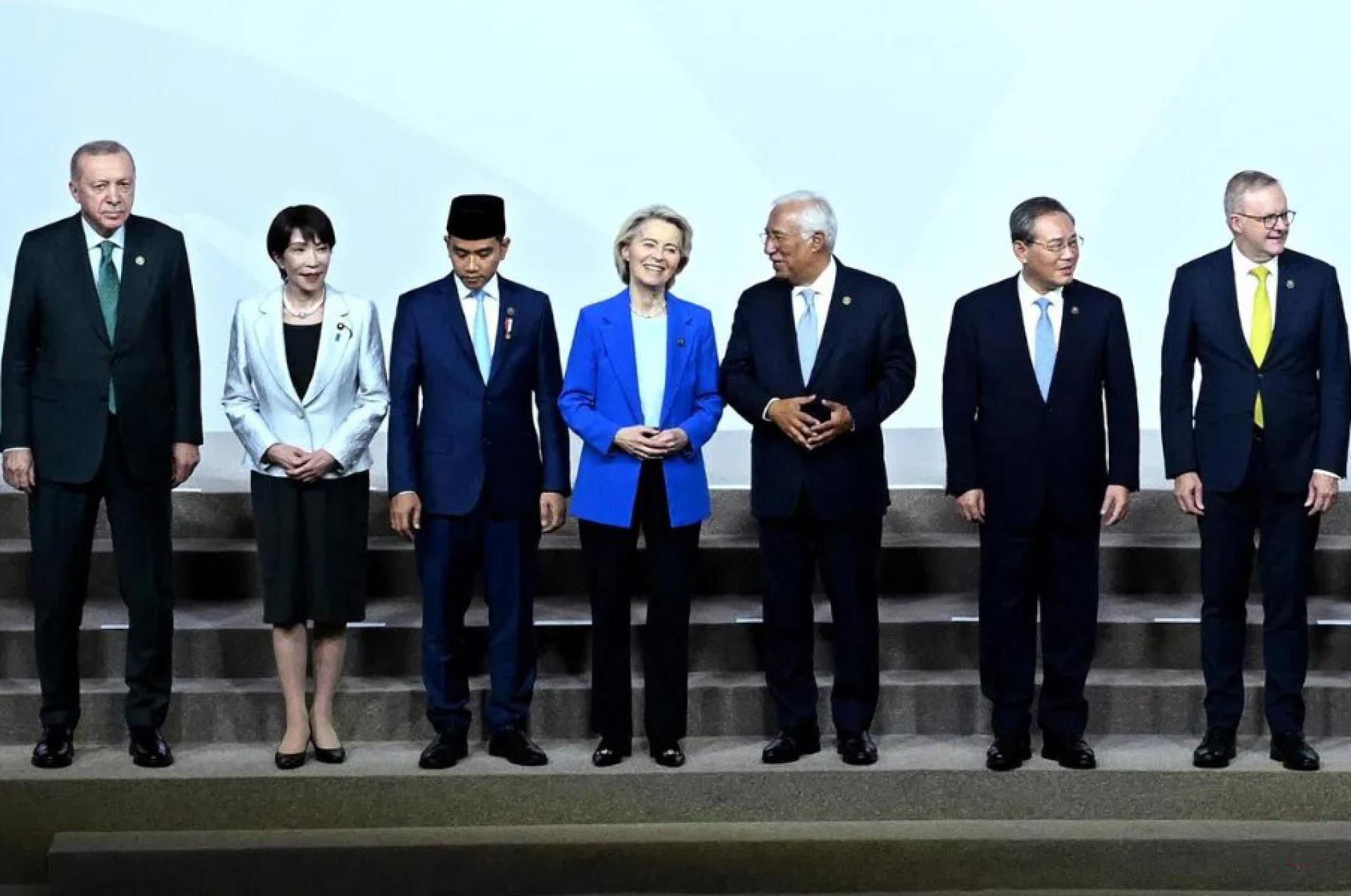(Tokyo, 23rd) Japanese officials stated that China’s claim that Prime Minister Sanae Takaichi has shifted Japan’s position on the Taiwan issue is “completely unfounded.” The Japanese side called for strengthened dialogue and to prevent further deterioration of Japan-China relations.
On Friday (November 21), China’s Permanent Representative to the United Nations, Fu Cong, sent a letter to UN Secretary-General António Guterres, clarifying the Chinese government’s position regarding Sanae Takaichi’s remarks and actions on China-related issues.
The letter stated: “If the Japanese side dares to militarily intervene in the Taiwan Strait situation, it will constitute an act of aggression, and the Chinese side will firmly exercise its right of self-defense as conferred by the UN Charter and international law, and resolutely safeguard national sovereignty and territorial integrity.”
On Saturday (22nd), Japanese Cabinet Public Relations Officer Maki Kobayashi, participating in the G20 Summit in South Africa, told Bloomberg that she has taken note of China’s letter, and that China’s claim that Japan has changed its position on the Taiwan issue is “completely unfounded.”
She stated that the Japanese side “has on multiple occasions clarified the key points of its statements and Japan’s consistent position to China,” and emphasized that Tokyo is “committed to dialogue with its neighbors.”
China is Japan’s largest trade partner and also the main supplier of critical minerals needed for Japan’s auto industry. Maki Kobayashi said that China is a major source for Japan’s rare earth imports and that Japan is striving to reduce this dependency. “We recognize that the peace and stability of trade relations are crucial to national security.”
Disputes arising from Sanae Takaichi’s view that “an emergency in Taiwan concerns Japan” have already led to some Chinese tourists canceling trips to Japan, and Beijing has also restricted imports of Japanese seafood. It is still unclear when this tension will ease.
Sanae Takaichi has said she has learned a lesson and will avoid specifying scenarios in which Japan might deploy troops, but she refused to retract her related remarks.
Separately, according to Japan’s Kyodo News, several diplomatic sources revealed on Saturday that Japan, which holds the rotating chair of the China-Japan-South Korea leaders’ summit, sounded out China and South Korea about holding the summit in January next year, but was rejected by China. Currently, there are no concrete negotiations on the timing of a future summit, and whether it can be realized has become uncertain.
The letter stated: “If the Japanese side dares to militarily intervene in the Taiwan Strait situation, it will constitute an act of aggression, and the Chinese side will firmly exercise its right of self-defense as conferred by the UN Charter and international law, and resolutely safeguard national sovereignty and territorial integrity.”
On Saturday (22nd), Japanese Cabinet Public Relations Officer Maki Kobayashi, participating in the G20 Summit in South Africa, told Bloomberg that she has taken note of China’s letter, and that China’s claim that Japan has changed its position on the Taiwan issue is “completely unfounded.”
She stated that the Japanese side “has on multiple occasions clarified the key points of its statements and Japan’s consistent position to China,” and emphasized that Tokyo is “committed to dialogue with its neighbors.”
China is Japan’s largest trade partner and also the main supplier of critical minerals needed for Japan’s auto industry. Maki Kobayashi said that China is a major source for Japan’s rare earth imports and that Japan is striving to reduce this dependency. “We recognize that the peace and stability of trade relations are crucial to national security.”
Disputes arising from Sanae Takaichi’s view that “an emergency in Taiwan concerns Japan” have already led to some Chinese tourists canceling trips to Japan, and Beijing has also restricted imports of Japanese seafood. It is still unclear when this tension will ease.
Sanae Takaichi has said she has learned a lesson and will avoid specifying scenarios in which Japan might deploy troops, but she refused to retract her related remarks.
Separately, according to Japan’s Kyodo News, several diplomatic sources revealed on Saturday that Japan, which holds the rotating chair of the China-Japan-South Korea leaders’ summit, sounded out China and South Korea about holding the summit in January next year, but was rejected by China. Currently, there are no concrete negotiations on the timing of a future summit, and whether it can be realized has become uncertain.
